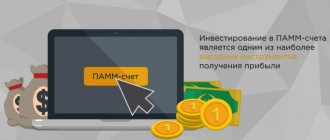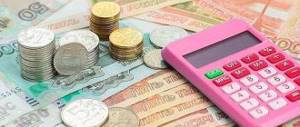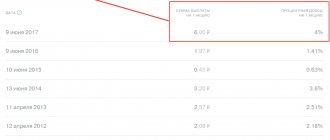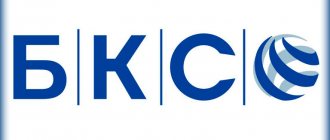Who pays? Investor or broker?
This question worries many. Some brokers recognized as tax agents, in accordance with clause 2 of Article 226.1 of the Tax Code of the Russian Federation, themselves carry out the calculation, withholding and transfer of all taxes to the relevant government bodies. Other companies, for example Justbroker (justbroker), are not tax agents in the Russian Federation, which means they do not withhold taxes on the profits of their clients. In this case, the investor independently bears the entire tax burden, reports income, and determines its size.
The second option is the most acceptable for the majority of experienced private traders who prefer to make independent decisions rather than the rules of the game imposed by someone. In addition, there is no guarantee that your broker will conscientiously perform the duties of a tax agent and will not overstate the amount of withholding tax. Some companies, like Justbroker, already mentioned, provide assistance to their clients in filling out tax returns, and also provide certified statements of trading accounts for calculating the tax base.
Option II: Payment of taxes by a forex trader with individual entrepreneur registration
Before we started writing the instructions, we turned to the Federal Tax Service of the Russian Federation with a clearly posed question: can a trader be an individual entrepreneur?
The answer from the Federal Tax Service of the Russian Federation means that a trader, using OKVED 64.99, can register as an individual entrepreneur and apply the simplified taxation system (STS). Before registering as an individual entrepreneur, a forex trader must select a taxation regime and type of activity. This is exactly what will be discussed further. We focused on the simplified tax system, however, in the instructions attached to the article you can also find information about the work of individual entrepreneurs using the general taxation system (GTS).
Step-by-step instructions on the procedure for registering an individual entrepreneur are posted on the official website of the Federal Tax Service of the Russian Federation https://www.nalog.ru/rn77/related_activities/registration_ip_yl/registration_ip/order/.
Or use the assistant: https://www.regberry.ru/malyy-biznes/okved (registration is required to access the document preparation and verification service). Registration as an individual entrepreneur.
First stage: Selecting a tax regime. The most suitable and profitable option for a Forex trader is the simplified tax system with the object of taxation “income” (the tax is no more than 6% of turnover). Main restrictions: number of employees – no more than 100 people; annual income – no more than 150 million rubles; the residual value of fixed assets is no more than 150 million rubles. Reason: Article 346.12 of the Tax Code of the Russian Federation.
Second stage: Selecting the type of activity. In 2018, the edition of the OKVED-2 classifier is in effect (another name is OKVED-2014 or OK 029-2014 (NACE rev. 2)).
Recommended types of activities that we indicate when registering an individual entrepreneur:
- 64.99 – Provision of other financial services (activities related to private investment). This group includes other financial services activities primarily associated with the distribution of funds other than lending, including, but not limited to, the entering into of swaps, options and other forward transactions, and private investment activities.
- 74.90 – Other professional, scientific and technical activities not included in other groups (various types of activities for the provision of commercial services; provision of other technical advice; activities of agencies and agents acting on behalf of individuals and claiming a share of remuneration from the participation of their clients).
Reason: All-Russian Classifier of Types of Economic Activities OK 029-2014 (KDEC Edition 2) – https://okved2.ru/. Additional confirmation that these are the types of economic activities that a trader should choose to register as an individual entrepreneur is the screenshot of the letter from the Federal Tax Service of the Russian Federation, which is posted above.
Third stage: Selecting a servicing bank. Today, a serious problem for clients has become the sudden blocking of settlement transactions by the servicing bank, as the Russian Federation continues to tighten supervision over the banking system. So far, blockages cannot be called widespread, but as part of the struggle for tax revenues and the entry into force of the automatic exchange of tax information, the domestic banking system is monitoring transactions more closely. Reason: Federal Law of August 7, 2001 No. 115-FZ “On combating the legalization (laundering) of proceeds from crime and the financing of terrorism”; Methodological recommendations of the Central Bank of the Russian Federation dated April 13, 2016 No. 10-MR “On increasing the attention of credit institutions to individual customer transactions.” The document can be viewed here: https://www.cbr.ru/StaticHtml/File/17579/10-MR_2016.pdf. If the client’s work contains anything from the specified list, the account may be blocked. Usually the bank does this without warning, stopping issuing cash and closing remote access to the Internet bank.
Of all the banks represented in the Russian Federation today, it is recommended to consider three of the top five “people's ratings”: PJSC AKB Avangard, JSC Tinkoff Bank, JSC CB Modulbank (formerly OJSC CB Regional Credit). Features: remote account opening (except for PJSC JSCB Avangard, since the procedures necessary for opening an account are carried out remotely here, but one visit is still required); low service rates; preliminary warning about the presence of problems (the account is not suddenly blocked); relative flexibility of the approach to cash withdrawal.
What taxes must a forex trader in Russia have to pay if he has the status of an individual entrepreneur?
A forex trader as an individual entrepreneur, conducting his activities independently, without hiring employees, is obliged to pay contributions for himself for compulsory pension and health insurance (both under the simplified tax system and under the special tax system), as well as a single tax under the simplified tax system or personal income tax under the special tax system.
1. Contributions for compulsory health insurance must be paid per year in a fixed amount, regardless of the amount of income received. Payment amount: 2018 – 5,840 rubles. 2021 – 6,884 rubles. 2021 – 8,426 rubles. Reason: subparagraph 2 of paragraph 1 of Article 430 of the Tax Code of the Russian Federation.
2. The amount of contributions to compulsory pension insurance (MPI) depends on the amount of income received by the payer for the year.
If the income for the year is equal to or does not exceed 300,000 rubles, the amount of payment for contributions will be: 2021 - 26,545 rubles. 2021 – 29,354 rubles. 2021 – RUB 32,448. If the annual income exceeds 300,000 rubles, then an additional 1% of the excess amount is paid. At the same time, the following limitation is legally provided for contributions to mandatory pension insurance: the amount of contributions calculated from income both up to 300,000 rubles and over 300,000 rubles cannot exceed the amount determined by the formula: Limit for paying contributions to mandatory pension insurance = 8 * the amount of the fixed payment for the corresponding year.
That is, if the actually calculated payment for compulsory health insurance contributions exceeded this amount, you must pay to the budget an amount equal to the limit. For 2021, the limit is RUB 212,360. (8 * 26,545 rub.).
3. Single tax under the simplified tax system. Within the framework of the simplified tax system, you can choose the object of taxation “income or income reduced by the amount of expenses incurred (sometimes they say “income minus expenses”). Reason: Article 346.14 of the Tax Code of the Russian Federation. It is possible to change the object of taxation only starting next year by notifying the tax authority in writing before December 31. Rates and calculation procedure. The tax is calculated using the following formula:
For the simplified tax system, tax rates depend on the object of taxation chosen by the entrepreneur. For the object of taxation “income” the rate is 6%. Tax is paid on the amount of income. According to the laws of the constituent entities of the Russian Federation, the rate can be reduced to 1%. When calculating the payment for the 1st quarter, income for the quarter is taken, for the half-year - for the half-year, and so on. Individual entrepreneurs pay tax at their place of residence (registration).
4. Personal income tax under OSN. The general tax regime for individual entrepreneurs provides that income from business activities will be taxed at a rate of 13%. The tax base in this case is the difference between the amounts of income received from business activities and professional tax deductions (expenses associated with business activities that can be documented). If it is impossible to document expenses, income may be reduced by the expense standard established by Article 221 of the Tax Code of the Russian Federation (20% of the amount of income). Applying this tax regime, an individual entrepreneur is obliged to keep a book of income and expenses and business transactions and submit tax reports to the tax authority at his place of residence. Including submitting to the tax authority a declaration on the expected income of an individual in Form 4-NDFL. The declaration is submitted, if income from business activities is received during the year, no later than five days after the end of the month in which such income was received. Reason: paragraph 7 of Article 227 of the Tax Code of the Russian Federation.
Procedure and options for paying tax and submitting reports
1. When paying tax without registering an individual entrepreneur.
Taxpayers must calculate the amount of tax themselves and pay it at their place of residence no later than July 15 of the year following the expired tax period, which is recognized as a calendar year. (Article 216 of the Tax Code of the Russian Federation). Individuals - residents of the Russian Federation - are required to independently declare income received from sources located outside the Russian Federation. The tax return is submitted no later than April 30 of the year following the previous year. The declaration form can be obtained free of charge from the tax offices. Or you can use the “Declaration” program for free by downloading it yourself from the website of the Federal Tax Service of the Russian Federation https://www.nalog.ru/rn77/program//5961249/.
2. When paying tax as an individual entrepreneur. Reporting periods are: 1st quarter, 1st half year, 9 months, year. Individual entrepreneurs pay tax at their place of residence (registration). Tax payment is made in advance no later than 25 calendar days from the end of the reporting period. For example, tax for the 1st quarter must be paid no later than April 25 of the current year. Advance payments made are counted against tax at the end of the tax period (year). Reason: paragraph 5 of Article 346.21 of the Tax Code of the Russian Federation. No later than April 30 of the year following the expired tax period, an individual entrepreneur must fill out and submit a tax return according to the simplified tax system, as well as pay tax at the end of the year.
Tax payment methods:
- non-cash from your current account;
- by generating a receipt for non-cash payment;
- in other ways (for example, another person can pay the tax for the payer. The method has nuances that are not the subject of consideration within the framework of this instruction).
The tax return form and the procedure for filling it out were approved by Order of the Federal Tax Service of the Russian Federation dated February 26, 2016 No. ММВ-7-3/99 “On approval of the tax return form for the tax paid in connection with the use of the simplified taxation system, the procedure for filling it out, as well as the format for submitting the tax return” tax declarations paid in connection with the application of the simplified taxation system in electronic form.” Available here: https://www.nalog.ru/html/sites/www.new.nalog.ru/doc/pril1_fns99_260216.pdf. To fill out a tax return, I recommend using special services. I think the most convenient is one of the programs of the 1C family, which can be purchased from official representatives of the company. There are also free software, for example from the same Tinkoff Bank JSC.
How to pay taxes for Forex investors?
The situation with Forex investors is quite clear, but not as profitable as for Forex agents or Forex traders. The investor receives his income through passive action, that is, he does not conduct his activities independently. Let me remind you that Article 2 of the Civil Code of the Russian Federation states: “entrepreneurial activity is an independent activity carried out at one’s own risk, aimed at systematically obtaining profit from the use of property, the sale of goods, the performance of work or the provision of services.” In our case, the Forex investor does not fall under this classification, which means he has only one option - paying a personal income tax of 13% and submitting a declaration for the past year before April 30.
Tax summary for forex traders and forex investors A forex trader has two options: paying personal income tax on his income or registering an individual entrepreneur with the ability to work under the simplified tax system or the special tax system. A forex investor has only one option - filing a declaration as an individual and paying personal income tax.
Additionally:
Compliance with the requirements of the currency legislation of the Russian Federation
On January 1, 2021, Bank of Russia Instruction No. 181-I dated August 16, 2017, regulating the procedure for the submission of documents and information by residents and non-residents when carrying out currency transactions, came into force. The document applies to residents who are legal entities, individual entrepreneurs or persons engaged in private practice, as well as to all non-residents (with the exception of individuals). Main innovations related to the subject of this instruction:
- instead of issuing a transaction passport, a procedure is being introduced for registering resident contracts with authorized banks and assigning unique numbers;
- requirements for residents to provide certificates of currency transactions, which are forms of accounting, are canceled;
- registration under foreign trade export contracts is necessary only if the amount of obligations under the contract is equal to or exceeds 6 million rubles. (previously, the transaction passport was issued for contracts of 50 thousand US dollars or higher);
- eliminates the need for residents to submit documents to authorized banks related to foreign exchange transactions under agreements (contracts) with non-residents, the amount of obligations for which is less than 200 thousand rubles.
I recommend: when concluding an agreement on settlement and cash services, contact an employee of the bank’s currency control department and consult about the bank’s requirements regarding the preparation of documents when receiving funds from a non-resident.
Responsibility for violations of current legislation
If the filing of the declaration is delayed for more than 10 working days, transactions on the current account may be suspended. Reason: Article 76 of the Tax Code of the Russian Federation. Late submission of reports entails a fine of 5 to 30% of the amount of unpaid tax for each full or partial month of delay, but not less than 1,000 rubles. Reason: Article 119 of the Tax Code of the Russian Federation. For late payment of tax, penalties are charged in the amount of 1/300 of the refinancing rate of the Central Bank of the Russian Federation of the tax amount transferred incompletely or partially for each day of delay. Reason: Article 75 of the Tax Code of the Russian Federation. For non-payment of tax there is a fine of 20 to 40% of the amount of unpaid tax. Reason: Article 122 of the Tax Code of the Russian Federation.
PS I remind you that in the comments to the article you can, who prepared the text of these instructions. In addition, similar instructions for citizens of Ukraine will be published within a month.
Payment of taxes to Forex traders/investors in Russia Detailed step-by-step instructions.
Downloads: 1100, size: 718.9 KB
The procedure for calculating tax on investor income
Everything is simple here. Profits from activities in financial markets, including those received as a result of speculative actions, are calculated at the rate applied for personal income taxes (NDFL), in accordance with Article 224 of the Tax Code of the Russian Federation. The investor’s entire income is taxed minus the “property deduction”, funds spent on the acquisition of a financial asset and payment of all commission fees.
The personal income tax rate for private investors who are tax residents of the Russian Federation is set at 13%. For individuals not falling into this category, personal income tax is calculated at a rate of 30%. Tax is imposed on profits earned during the reporting period, which lasts a year. In this case, all transactions of the trader (investor), both profitable and unprofitable, are taken into account. At the end of the reporting period, the resulting balance for all closed transactions in the account is displayed. Personal income tax is calculated on the amount of this balance.
How is tax deducted?
In any case, your broker is the tax agent. That is, when you receive income from investments (bought a share for 100 rubles and sold for 200, dividends or coupons arrived), the broker calculates and withholds taxes. You don’t need to fill out, calculate, pay or declare anything additional, says Anna Zaikina.
At the same time, there are some features of tax withholding on a regular brokerage account and IIS.
“In a regular brokerage account, the broker immediately withholds tax on dividends and coupons; they come cleared to the account,” explains Anna Zaikina. — On IIS, most brokers also receive the tax on coupons cleared, but there are exceptions, for example, VTB credits the full amount of coupons to the IIS and withholds the tax on coupons - once - when closing the IIS. Be careful, if you use a type A deduction under IIS, then the broker will not withhold personal income tax from your investment income for all three years, and will do this once when closing the account. The amount can be impressive if you have received a good return on investment over three years.”
Some features of taxation of investors' activities
Brokers that automatically withhold taxes from their clients do not always calculate the correct tax base and may not include certain trader expenses that are deducted from the resulting taxable balance. For more complete control over your own income, you can use the services of brokers who are not tax agents. Such companies, among other things, provide effective recommendations on how to reduce the tax base legally. A striking example of such companies is Justbroker, whose customer reviews indicate the high-quality work of its employees in this area.
Another feature is that personal income tax is calculated in rubles. So, if you purchase an asset denominated in dollars, then the corresponding expense (tax deduction) is recalculated into rubles at the current exchange rate of the Central Bank of the Russian Federation. The sale price of the asset is also converted into domestic currency at the exchange rate on the day of sale. Often a situation arises when an asset purchased for dollars loses value, that is, you incur losses. However, as a result of a rise in the dollar exchange rate, the value of the asset in rubles may increase. Thus, the broker will be forced to withhold personal income tax from you.
What other possibilities are there?
In Russia, it is now possible to register with the tax office as a self-employed taxpayer. This opportunity appeared relatively recently and at the moment (January 2020) it applies only to four regions of our country (for Moscow, Moscow and Kaluga regions, and the Republic of Tatarstan).
By registering as self-employed, you could pay a professional income tax (PIT) of 4 to 6%. In this case, there would be no need for other mandatory payments (to the Pension Fund and the Compulsory Medical Insurance Fund), as when registering as an individual entrepreneur.
But, unfortunately, this opportunity does not apply to traders, since according to the new legislation, income from trading in securities and other financial instruments is not subject to tax for self-employed people.
What happens, a law-abiding citizen has only two options: either pay 13% as an individual, or pay 6% as an individual entrepreneur, but along with the obligation to make payments to the Compulsory Medical Insurance Fund and the Pension Fund?
Fortunately, no, the trader still has the opportunity to trade through an individual investment account (IIA). By trading in this way, he gets the opportunity to return taxes paid to the state in the form of a tax deduction. That is, in essence, it turns out that in this case, his expenses for paying taxes are ultimately reduced to a minimum (if not to zero).
By trading through an IIS, it will be possible to return up to 52,000 rubles annually from taxes paid. This means that if your total trading profit for the year does not exceed 400,000 rubles, then you will be able to return all your tax deductions. If you earn more (which I sincerely wish for you), then the amount of taxes paid will decrease by 52,000 rubles annually.
What will this give you as a percentage? For example, with annual earnings of 800 thousand rubles, the total amount of tax payments (including refunds) will be 6.5%. Consider for yourself:
- First, you will pay 13% tax on 800,000 rubles equal to 104,000 rubles;
- After this, next year, you will be returned 52,000 rubles as a tax deduction;
- As a result, it turns out that you paid taxes in the amount of 104,000 and 52,000 = 52,000 rubles. Or 6.5% of 800 tr.
Brief summary
Justbroker clients, whose reviews can be found on various financial websites, talk about the convenience of independently fulfilling tax obligations. However, most traders trust their broker to resolve this issue. Whatever option you use, it is worth remembering that the profit of a private investor, like other income of individuals, is subject to mandatory tax. Evasion of payment is a violation of the legislation of the Russian Federation and is punishable by appropriate measures, including the initiation of a criminal case.
How much profit do you need to pay tax on?
Please note that income is considered to be the profit received in excess of the invested funds. Therefore, a taxable base is created only if more money has been credited to the payment system or bank account by a forex broker than you have invested in this company.
For example, during the year you deposited 100 thousand rubles into your Forex broker account. As of December 31 of the same year, the total amount of money that you withdrew back did not exceed 100 thousand rubles. In this case, you do not need to pay any taxes! And it is very, very important to know that it does not matter at all how much of your money is left with the Forex broker (more than the invested amount or less), until you receive it, it cannot be considered income. Long-term traders and investors can exhale











